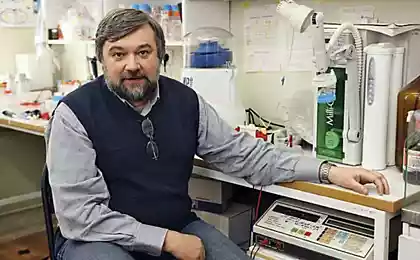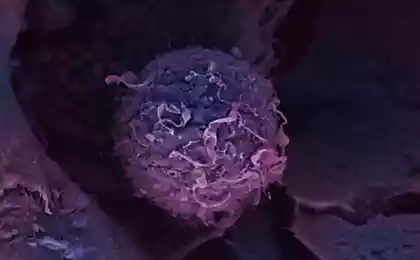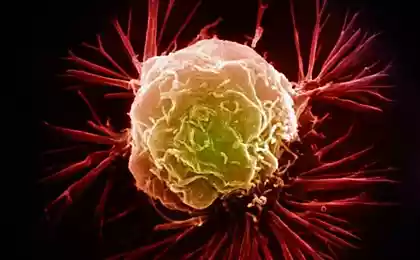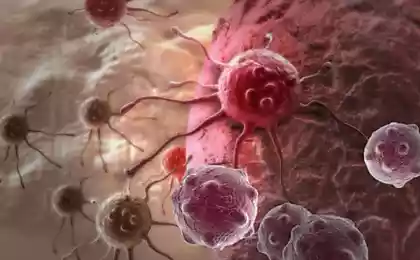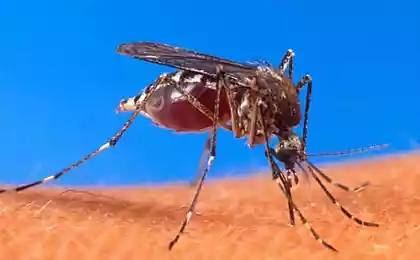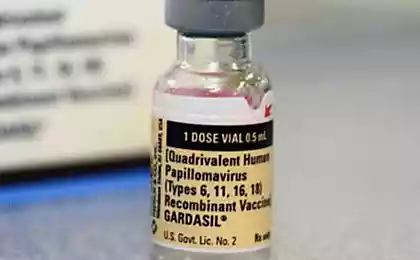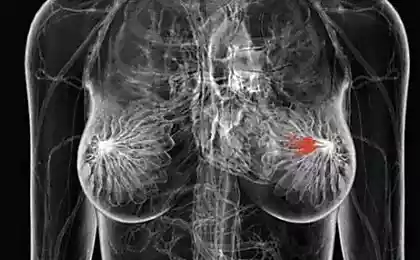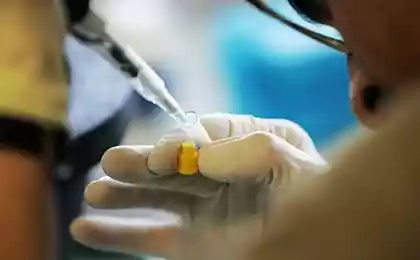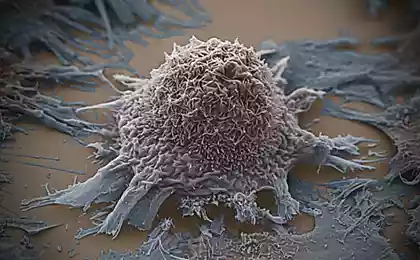844
A vaccine against malaria has become a candidate for cancer drugs

Danish biologists from the University of Copenhagen and the University of British Columbia,
studying the effect exerted by the vaccine against malaria on the body of pregnant women, accidentally discovered a promising feature of this vaccine which can help in the fight against cancer.
Scientists testing a vaccine against malaria in humans, they said, came across an interesting fact - malarial parasitic single-celled organisms (протисты) They cling to the placenta exactly the same proteins which can be found in cancer cells.
"For decades, scientists have searched for common signs of growth of the placenta and tumors. The placenta grows in a few months to a few cells from the body weight of 600-700 g., Functioning with relatively autonomously. In a sense, tumors behave in a similar way "- says Ali Salant [Ali Salanti] from the Department of Immunology and Microbiology, University of Copenhagen.
Salant explained that team of biologists found out : and in the placenta, and tumor in the marked protein is responsible for the rapid growth. In one experiment, malaria parasite behaved with tumor cells in the same way as with the placenta, ie, joined them.
Then, in the laboratory, scientists have reproduced the protein used by malaria parasites, and added to it a toxin. This couple is able to seek out cancer cells in the body. Cells engulf the protein, after which the toxin is released inside the cell and has kills it. This wonderful process has already been registered in artificially grown cells and in living mice. This was told the biologist Mads Daugaard [Mads Daugaard], one of the former students Salant, which they are now working together on this task.
Scientists claim that thousands of copies checked completely different cancer cells, and 90% of them are actively interact with the protein. In mice, experiments were performed with three types of tumors which were implanted in their body. The result has been registered any significant reduction in tumor size, or their disappearance in a high percentage of experimental or survival of mice, in contrast to those who have not received the experimental drug.
"It seems that the malarial protein is attached to the tumor and does not pay attention to other tissues. The percentage of surviving mice received a dose of the protein and the toxin to be dead, were significantly higher than those who did not receive these doses. Three doses can stop the growth of tumors and even cause it to decrease, "- said PhD Thomas Mandel Clausen [Thomas Mandel Clausen], for two years, working in a research group.
Scientists explain that the tests in humans can be held no earlier than four years. The main question - whether this works in the human body, and whether the body to cope with the doses needed to achieve results. If all of a sudden, this method works, then the problem is only that such a cure can not be applied to pregnant women.
Source: geektimes.ru/post/264112/
Intensive training for burning fat. Just 20 minutes for Amazing Results!
Artificially grown meat in the lab will be available in the next 5 years
